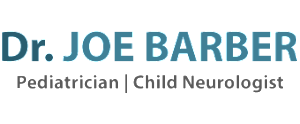Educational Services
Initiation of early intervention as soon as the diagnosis of ASD is made is the fundamental principle for children with Autism Spectrum Disorders (ASDs). The level, type and duration of service intervention will depend on your child’s needs. Generally speaking a period of observation will be needed to determine the required services. This may range from intensive 1:1 engagement to a more inclusive group approach. For this entire range of services the key is for all providers involved in the care to be knowledgeable about ASDs and the specific needs of your child.
Objectives must be chosen for every goal that is sought. The focus should be on no more than 2 goals at any given time and a maximum of 2 or 3 objectives for each goal. These goals must be prioritized in a collaborative fashion with the family and pursued in a systematic and developmentally appropriate fashion.
Generally, children with ASDs require more intense observation and general teaching than children who do not have an ASD. Low student to teacher ratios and enhanced instruction times are vital for short and long term success. Family training and integration into service development and provision are also necessary. The use of augmented teaching strategies focusing on visual learning strengths and integrated opportunities for physical activity for mood and behavioral enhancement must be sought. Recognition of any underlying auditory processing disorder and the level of ongoing executive function deficits are also important.
The chosen educational routine must be predictable and consistent over time and place. Necessary skill development must be pursued while providing opportunities for the application of all new learned skills in both the home and outside environments. The program must include ongoing measurement, categorization and documentation of the entire learning process so ongoing adjustments to the curriculum can be made. Skill sets must be evaluated in a number of areas including but not limited to the following: joint attention and gaze, social skills, social reciprocity, imitation, cooperation, play, leisure activities and self initiation of activities and self management of negative or maladaptive behaviors. The elimination of disruptive negative and maladaptive behaviors is especially important. Cognitive skill development should be pursued as long as the intellectual skill profile supports such intervention. Such skills include a self awareness of personal needs and wants as well as the feelings, thoughts, words and actions of others.
Academic readiness skills must be optimized to allow job opportunities to be pursued as interest level and skill set allow. This should be done in an inclusive environment but inclusion should not be pursued if the variability of an inclusive environment poses a threat to short or long terms emotional capability or academic readiness success.
